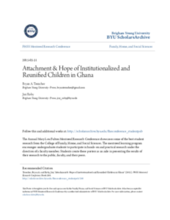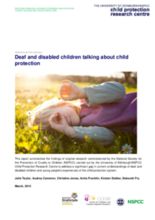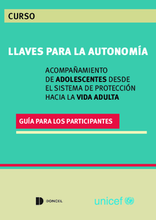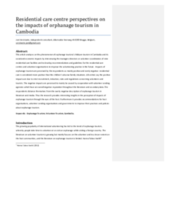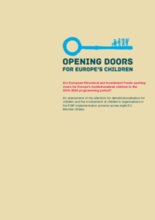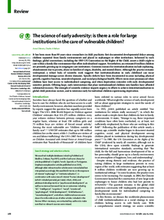Displaying 1091 - 1100 of 1482
This study was aimed at assessing growth and developmental outcomes of children living in orphanages in Odisha, India aged birth to 72 months and to make recommendations for “possible remedial measures” for addressing poor growth and developmental outcomes for children in institutions.
This poster provides a brief overview of research conducted in Ghana to examine how institutionalized children’s hope for the future may be impacted by perceived social attachments.
The aim of this study was to explore the experience of consultation in three residential childcare settings in the UK.
The aim of this study was to assess the prevalence and comorbidity of mental disorders applying diagnostic interviews in an entire population of adolescents living in residential youth care (RYC) in Norway.
This report summarises the findings of original research commissioned by the National Society for the Prevention of Cruelty to Children (NSPCC) in the UK carried out by the University of Edinburgh/NSPCC Child Protection Research Centre to address a significant gap in current understandings of deaf and disabled children and young people's experiences of the child protection system.
This report aims to provide the basis for an agenda to improve university attendance among care leavers in Australia by highlighting the nature and extent of the problem, and suggesting practical solutions within both the education and community service sectors.
El presente curso surge del Acuerdo de Cooperación suscripto en 2014 entre UNICEF Argentina y la Asociación civil por los derechos de niños niñas adolescentes y jóvenes Doncel que tiene por objetivo principal contribuir a desarrollar un modelo de acompañamiento integral para adolescentes residentes en los hogares asistenciales de las provincias argentinas de Misiones, Jujuy, Chaco, Santa Fe y Tucumán en transición del sistema de protección hacia la autonomía y la vida adulta.
This article analyses on the phenomenon of orphanage tourism/ childcare tourism in Cambodia and its social and economic impacts by interviewing the managers directors or volunteer coordinators of nine residential care facilities and to develop recommendations and guidelines for the residential care centres and volunteer organisations to improve the volunteering practice in the future.
This report is based on the outcomes of a survey addressed to eight National Coordinators of the Opening Doors campaign. It aims to assess the extent to which EU Member States have used ESIF to catalyse child care systems reform.
This review discusses the worldwide phenomenon of child institutionalisation and assesses scientific evidence on the developmental effects of early institutional care.


